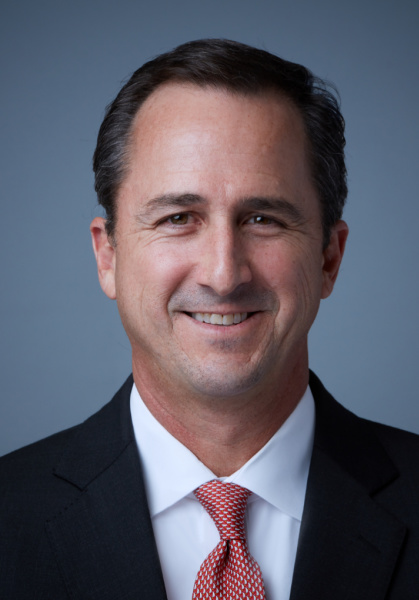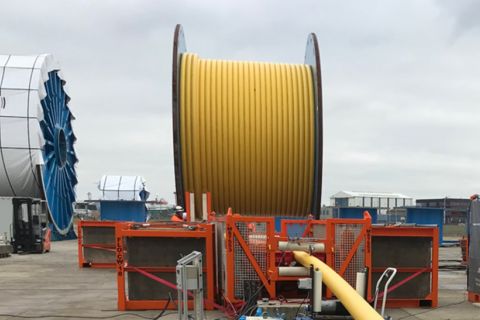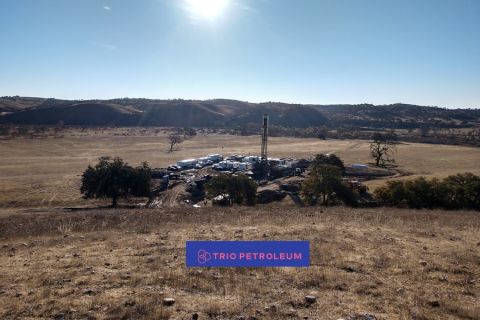Learn more about Hart Energy Conferences
Get our latest conference schedules, updates and insights straight to your inbox.
Presented by:
You’ve heard it everywhere: “The upstream sector of the oil and gas industry is being canceled by institutional investors; I’ve never seen such good opportunities to buy and drill, but there’s no capital to pay for it; grandchildren of Momma Cass are singing, ‘Where has all the PE gone, long time passing?’”

Oil and Gas Investor heard you and asked COSCO Consulting LLC’s Cameron Smith, who helped introduce private equity (PE) to the oil industry and put together the first conferences on PE and energy investing, including Hart Energy’s Energy Capital Conference, to conduct a survey on PE’s attitude toward investing in the E&P space and interview many of its leaders to find answers to just these questions.
Between the middle of September and early October 2021, the survey was sent to capital sources that characterized themselves as a PE or debt provider who have an interest in E&P. Out of some 125 entities, 19 responded to the survey (which in and of itself may be a partial answer to the email’s question).
Fortunately, the survey incorporates a good cross section of large and small private equity providers, specialists in energy, as well as general investors headquartered in the East, in Texas and even Canada, and a few that have added or switched entirely from conventional energy to investing in alternative energy, transition businesses or companies that provide ESG services.
The respondents to the survey have as few as one to as many as 15 active funds, with capital originally raised from $70 million to $42 billion. The amount currently available for new investments ranged from $25 million to $7 billion and for support of existing portfolio companies from $0 to $2 billion. (This last number, due to proprietary concerns, was the question most often left blank in the survey.)
Shrinking investor base
The survey found that all respondents agreed that it is far more difficult today to raise capital for upstream investments than it was three years ago. Part of that observation, however, appears to depend on what types of institutions a fund manager has typically raised its funds.

Peter Leidel, a founding director at Yorktown Partners LLC in New York, said that fewer college endowments, foundations and public pension funds are now investing in upstream, while he’s seeing more investment from insurance companies and family offices.
Wil VanLoh, founder and CEO of Houston-based Quantum Energy Partners, agreed. “Endowments and foundations in general are now anti-hydrocarbons. Ten to 20% of limited partners [LPs] are taking the position that upstream is a verboten asset class,” he said. “Others, [such as] corporate pension funds, high-net worth and national investment funds, are a mixed bag.
“ESG has been the excuse to drop hydrocarbon investments, but, really, it’s a function of their financial returns. When a bunch of people lose money, it turns everyone off.”
Jonathan Farber, co-founder and managing director of Houston-based Lime Rock Partners and Westport CT, attributes much of the movement away from oil and gas to the influence of politically motivated decision makers on the public institutions’ boards as opposed to their professional investor staff. These individuals tend to be unaware of the underlying impact and importance of oil and gas versus alternate energy sources, he noted. These classes of investors, many of our respondents noted, are driven by emotions and reactions to what they hear on television, see in the movies and learned in school.
As Jim Hutchison, president of Allegro Capital in Calgary, Alberta, summarized: “The sober side is just plain crazy! Did you see the Wall Street Journal article about problems in Europe? We could have $100 oil this winter! The Whitecaps, Tourmalines and Enerpluses in Calgary are cash flow machines. Even so, there’s no public money, and most of the local PE shops have closed down.”
ESG concerns
Sophia Friese, head of ESG at EnCap Investments LP in Houston, said, “LPs have been focused on ESG for a while. Questionnaires from LPs have asked about our ESG practices for years, but the industry’s recent macroeconomic challenges have increased focus on ESG concerns. Good returns and ESG performance will draw investors back.
“That’s one of the reasons EnCap feels the upstream business is so exciting,” she said.
Another reason for the surge in ESG concerns is politics. Leidel emphasized the obvious: “Under Trump, energy independence was acclaimed as a huge achievement. Under Biden, we see a 180-degree difference. Biden’s doing all he can to discourage the production of domestic hydrocarbons. Next year’s elections could flip all of this back around.
“We’re in business to make money for our investors,” he said. “Whatever we invest in must make economic sense. We can’t afford virtue signaling, investing for ESG points. Politics change. When gasoline goes to $4 per gallon, you bet there’ll be a blow back. We’re already seeing this in California, Germany and France.”
People interested in investing in hydrocarbons these days are those most contrarian, according to Leidel.
For example, Pontem Energy Capital, managed by Jeff Bartlett in Houston. Pontem Energy has a single, evergreen investor, an undisclosed $50 billion hedge fund in New York City, which, he wrote, “considers ESG concerns and effects as creating opportunities for even greater and more attractive investment in upstream oil and gas.”
According to Bartlett’s response to the survey, Pontem has a call on up to $1 billion, which can be used for either new or to supplement existing investments.
What else is behind this crescendo in ESG concern? “Go to Google or any of the social platforms,” another respondent to the survey challenged. “I defy you to find a single article that says anything positive about fracking and natural gas’ contribution toward lowering our U.S. carbon emissions.” The same person asked, “When was the last time you heard a child come home from school talking about the benefits of the oil industry or watch a thriller where the arch villain wasn’t an oilman? ‘Dallas,’ anyone?”
The point this respondent is making is that the educators, the media, Hollywood and now Big Tech have all teamed up to destroy the hydrocarbon business, and the children that started imbibing this 20 years ago now rule the roost.
But will this attitude last? Tym Tombar, managing director of Arcadius Capital Partners in Houston, wrote, “Many of our historically supportive LPs have moved on from upstream oil and gas. It has been easy, given our sector’s relative performance and the headline risk around climate change. But returns will change that. Upstream will become too solid to ignore.”
He and many others point to the allure of the oil and gas industry’s pending financial future to woo back institutional investors, a claim contested by David Leuschen, co-founder and senior managing director of New York-based Riverstone Holdings LLC.
“Even if field-level economics turn around, investors will have muted responses, due to bad financial returns and ESG concerns. Lots of traditional investors have committed not to invest in hydrocarbons,” said Leuschen.
Mark Teshoian, managing partner and cohead of Kayne Energy Private Equity, on the other hand, sided with Tombar. “The world at large is very unaware of, and unprepared for, the consequences of this [ESG] attitude. They’re already manifesting in Europe/Asia.”

Teshoian said he believes that “shocks to the system will cause investors/policymakers to wake up.” He admits that the current environmental trend is necessary, but, he added, “the energy transition needs to be done in a responsible way. Wholesale abandonment of fossil fuels will create real problems, which may result in more resistance to the energy transition movement.
“We certainly don’t want the solutions to be worse than the perceived problems.”
Let’s unpack all this. There is no contesting that a big part of why institutional investors have shied away from investing in hydrocarbons is the dreadful financial performance these investments have provided over the past half-decade or so.
Quantum’s VanLoh said in his interview that financial returns for the industry have been bad since 2005.
“The industry since then has been a horrible steward of capital. As a consequence, capital available for investment in the industry is down 75% or more from just five years ago. Most of the large generalist funds are now out of this sector,” he said.
“The decision to get out came from the very top because management was tired of being criticized by their investors for the drag their energy investments were having on overall returns. Most of these generalist funds had stubbed their toes badly on energy investments, mostly because they didn’t monetize fast enough. They thought they were building companies of scale to take public, but both the rocks and the markets failed them. Even many energy-only funds, particularly the larger ones, were caught by this same failed strategy, and many of them are out of investors.”
Lime Rock’s Farber had a different take. He believes the reasons the industry performed so badly over the past decade is that the shale play disrupted global precedents.

“Normally, when a new source of supply comes on, prices don’t change for some time. New shale technologies, however, drove costs down precipitously, while bringing on world-transforming supplies of both gas and oil. The industry became the victim of its own success; increased supplies disrupted the glide plane of high prices,” Farber said.
“On the micro side, as public markets bought into shale, PE flipped quality rocks into the hands of public companies. PE then moved to the basin margins, attempting to force a value step-up. The expectation was that drilling and completion technologies would continue to improve. Ultimately, however, the cumulative effect on supply lowered prices at a rate that outpaced the benefits of lower costs.
“Cynics say that these plays were never economic. Not true! The industry performed way too well. Sure, some plays didn’t work out, but many did,” he said.
Upstream investment opportunities
Given all this, what does PE think of current and future opportunities in upstream? According to the survey, more than 75% of respondents think global demand for natural gas will be "significantly” higher 10 years from now, while 50% of respondents said they expect global oil demand and WTI pricing for oil also to be higher in both five and 10 years.
“The more intriguing trend is the muted North American supply response, due to capital discipline and the ‘no growth’ mantra among public companies,” Andy Evans, managing director of ARC Financial Corp., wrote in his survey response.
This is something many of the respondents have remarked. As Farber said, “At $70/bbl oil, the industry would normally have 2,000 rigs working. Now, there are only 550. This is way off! There are, of course, some legitimate reasons: less opportunity to drill in A-level shales; rigs are more efficient; and the industry is maintaining a very high level of discipline in terms of distributions versus drilling. But this muted response will have consequences. It appears production this time around is going to take a long time to ramp back up.” For Lime Rock, this is the allure of getting back into the upstream, right now. “The five years of bad returns ended nine months ago.”

VanLoh agreed, “This is a fascinating world—I’ve never had a story so good to tell and so hard to sell! The industry can’t turn this around quickly. For the last seven years, we have massively underinvested in the business, and, consequently, the supply side is suffering. At $2.75/Mcf gas and $65/bbl oil, we are minting money in shales.
“Both last year and this year, we have had some of the best field-level economics ever. We feel the macros today are the same as in 2000 to 2003. Commodities tend to move in 10- to 15-year cycles. Gas has already been in its cycle for 13 years; oil for seven years. Less than 15% of oil comes from shales. Conventional oil plays take five to 10 years to come online,” he said.
“Most of the majors are becoming—forced to become—utilities. No reversal soon. This is the first time in history that the markets are sending signals by raising prices, and the industry is not reacting. The market isn’t reacting. If you have assets, if you can raise capital, you have huge tailwinds. If you’re a consumer, you have huge headwinds. Comeuppance is a-coming!”
What PE wants
So, what is PE looking for? According to the survey, 75% or more of the respondents are looking to back teams who are pursuing acquisitions (versus drilling, which scored below 50% interest), and the percentages get even higher the closer you are to having a specific deal under contract (or at least to talk about). On the other hand, 90% of respondents weren’t interested in LNG or the oilfield service sectors.
In terms of structure, the vast majority of respondents continue to favor investment through common stock. PE is showing far more flexibility now than in the past; however, with over a third of respondents reporting they are significantly more likely to invest through partnerships or joint ventures than through C corps—a big change from a decade ago.
Uncertainty about monetization of investments has been a drag on fundraising, according to Michael Keener, CEO and president of KP Energy Management.

So, what do our respondents see as the prospects for exits in today’s markets? More than 75% see no opening in the IPO market, at least not as an option on which they can count. Sell to another private company or sell/ merger with a public company were anticipated as likely exits by more than 60% of those who responded. The avenue deemed by 75% of respondents to be the most likely, however, is “free cash distributions and asset sales,” which is a major shift from the last generation of PE and corroborates the trend in current PE toward real-time return of capital to their LPs.
Kayne’s Teshoian cautioned, “Hiring an investment bank and selling assets works for small- to medium-size packages. It’s much more challenging if you have sizable assets. You have to be more creative about how to exit. IPOs are more challenging now. Some companies like Vine [Energy Inc.] and Indigo [Natural Resources Inc.] have elected to merge with a public company. Most of Kayne’s businesses generate a lot of cash flow, so we don’t have pressure to sell anytime soon.”
What other lessons are PE managers drawing from the dark days not long past? “Most LPs that have been in the E&P space for the past decade are fed up with losing money,” VanLoh said. “Three out of four energy-focused funds they invested in have performed abysmally. Poor returns plus volatility are an LP’s nightmare! But if one hedges appropriately and uses little debt, E&P doesn’t have to be volatile.” So that’s one big takeaway.
Many PE sponsors, such as EnCap, are also adopting ESG practices.
“ESG principles have been a priority for EnCap over the course of our history,” said Friese. She noted that EnCap has had a formal ESG policy in place since 2012, and ESG matters are discussed at quarterly board meetings. “This just makes good business sense, as a good ESG record increases the likelihood of achieving the highest value at exit.
“Not only is it the right thing to do, but it helps us remain aligned with our investors,” she said.
Teshoian added, “ESG is a major and growing issue among our investors.” He said Kayne has focused heavily on environmental issues for at least the past six to seven years. Like EnCap, it has a dedicated ESG manager and coordinates ESG-related activities among all its portfolio companies. Kayne also conducts an ESG conference with its portfolio companies, where ESG best practices are presented and discussed. “There is no doubt that ESG issues will continue to constrain capital available to energy-focused PE,” he said, but “it’s as much climate change concerns in general, not just ESG.”
Of course, another consequence of investors’ interest in ESG is a shift by the managers themselves, either to add ESG investments to existing funds, add ESG funds to their stable of funds or to abandon raising new hydrocarbon funds entirely and segue to becoming solely an ESG investor.
Raising funds
Fifty percent of our respondents stated they were “significantly” to “very” likely to raise a new hydrocarbon fund within the next two years. Twenty-two percent of them indicated similar likelihood that within the same time they would also raise an ESG-focused fund. Another 16% reported their intent to raise an ESG fund in lieu of their usual hydrocarbon fund, which clearly indicates the strength of the sector in the eyes of traditional PE.

One of the most assertive in this last group was Riverstone’s Leuschen. The company is raising a new fund, he said, all about decarbonization, hydrogen, electric vehicles, batteries and the greening of fossil fuels.
“ESG is good business,” Leuschen said. “We’re now at clean energy version 2.0, and this provides very attractive business opportunities. None of this is solely altruistic,” he said. Leuschen’s claim is that he can use Riverstone’s experience in conventional energy, plus the firm’s own 15 years in renewables, to make attractive investments and create flagship decarb companies.
The new role of Riverstone is “to build post-petroleum companies that materially benefit the decarbonization process,” he said. The company intends to invest heavily around electrification of transport, grid flexibility, agriculture and next horizon resource plays (low-carbon jet fuel, hydrogen). Leuschen asserts with a certain amount of passion that Riverstone’s investments will “move the needle in cutting down carbon use.”
Leuschen noted that Riverstone has been a prolific issuer of special purpose acquisition companies and pipes, having raised $2 billion during the past 12 months, all for investment in the ESG sector. He also said that since COVID-19 began, Riverstone has raised $1.5 billion in two fund-continuation vehicles, which seek to buy decarbon-based companies out of the portfolios of Riverstone’s maturing funds, thus giving its investors the chance to cash out or roll forward their ownership in these decarb businesses.
Yorktown is approaching ESG somewhat differently. According to Leidel, Yorktown already has a renewable fund with six or seven smaller investments, mostly involving battery storage. He added that Yorktown has a couple companies looking at carbon sequestration with projects already identified. Most of this is social license, he admitted, but some are economic on their own.

“Every big company today wants to have a signature green project that it can point to.” But Leidel’s conclusion is that “renewables end up being power, which ultimately gives rise to utility-type returns (high single digit). Therefore, renewables are a challenging sector for PE–except strictly in niches.”
Almost all the respondents to the survey included some interest in ESG investment strategies. Cited were growth equity investments in transition businesses, including renewable development, renewable services and manufacturing; transition/CCUS; upstream with carbon capture or ESG overlay; solar, wind, geothermal and storage; and downstream and low carbon energy infrastructure opportunities.
Teshoian had a slightly different take. “Kayne is planning on investing in upstream companies for the foreseeable future. It’s simply not good policy for the world to abandon E&P. It will create enormous supply shocks that will negatively affect the economy and generate public backlash.
“Also, the concept of divestiture is very misguided. Majors have bent to public pressure and started divesting of fossil fuels. However, these assets don’t magically disappear. It’s far better for investors to work with companies to reduce emissions in existing assets than to sell them to companies where there is less transparency,” he said.
“While we will continue to invest in upstream, we are also looking at investing in transition businesses, like carbon capture and sequestration, water handling and service businesses that help to plug and abandon orphaned wells. These types of transition businesses fit Kayne better because they operate closer to the upstream business, which is our core competency.”
ESG is clearly having a huge effect on the capital that is available to the upstream oil and gas sector and on those PE firms who are smart, good or lucky enough to continue to attract it. It’s also having an enormous influence on how that capital is being deployed and how it is being monitored and reported. And, as the surveys found, it has both ardent champions and realists who consider it simply a license to operate. As VanLoh put it, “Everyone soon will have an ESG score, and it will determine who survives!”
Cameron Smith is the founder and manager of COSCO Consulting LLC. During his 46- year career, he spent the first 15 in the oil industry as an independent producer, the next 20 building COSCO Capital, an investment bank that pioneered line-of-equity financing from private equity for oil and gas startups, and eight of the last 11 as a senior adviser to the energy group at Warburg Pincus.
Recommended Reading
Exxon Mobil Guyana Awards Two Contracts for its Whiptail Project
2024-04-16 - Exxon Mobil Guyana awarded Strohm and TechnipFMC with contracts for its Whiptail Project located offshore in Guyana’s Stabroek Block.
Deepwater Roundup 2024: Offshore Europe, Middle East
2024-04-16 - Part three of Hart Energy’s 2024 Deepwater Roundup takes a look at Europe and the Middle East. Aphrodite, Cyprus’ first offshore project looks to come online in 2027 and Phase 2 of TPAO-operated Sakarya Field looks to come onstream the following year.
E&P Highlights: April 15, 2024
2024-04-15 - Here’s a roundup of the latest E&P headlines, including an ultra-deepwater discovery and new contract awards.
Trio Petroleum to Increase Monterey County Oil Production
2024-04-15 - Trio Petroleum’s HH-1 well in McCool Ranch and the HV-3A well in the Presidents Field collectively produce about 75 bbl/d.
Trillion Energy Begins SASB Revitalization Project
2024-04-15 - Trillion Energy reported 49 m of new gas pay will be perforated in four wells.






